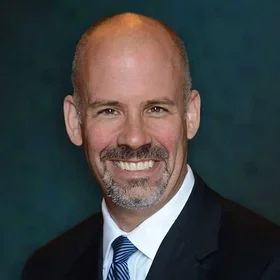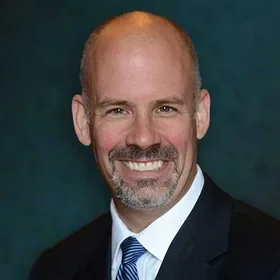Dean Wingard has announced that the junior senator from New Jersey, and former presidential candidate, will deliver the keynote speech at the Columbia University School of Professional Studies Graduation Ceremony on Saturday, May 16, 2020. Here are five things to know about Senator Booker:
- A personal setback led to one of his biggest wins. As a high school student, U.S. Senator Cory Booker received a personal call from former President Gerald Ford. He wanted Booker to play football for the University of Michigan, Ford’s alma mater. Booker, who was considered a top 25 prospect in the country, turned it down for Stanford University. But by the time he reached his final year at Stanford, Booker learned that he’d no longer be on the football team. "It was like the first time in my life I ever felt like I failed at something,” he told The Philadelphia Inquirer in 2018. “[T]here's so many blessings sometimes in your toughest times." Booker used the extra time to apply for – and receive – a Rhodes scholarship to the University of Oxford. He also met a fellow student and younger player on Stanford’s football team: Jason Wingard, Dean of the School of Professional Studies. Booker’s Rhodes experience would eventually lead him to Yale Law School and a political career.
- He was nicknamed “Mahatma Booker” as a Rhodes Scholar. U.S. Senator Booker understood the value of education and used it to pivot early in his career. After earning a B.A. in political science and an M.A. in sociology from Stanford, Booker used the prestigious Rhodes scholarship to study abroad at the University of Oxford, where he earned an honors degree in U.S. history . “It was like a gift to have two years to shift into a different gear,” he shared with The Washington Post last year. “[I]t helped to clarify and deepen a lot of my intellectual, moral and spiritual values.” Classmates jokingly called him “Mahatma Booker” because he often quoted the renowned Indian activist’s calls for openness, empathy, and service to others. At Oxford, Booker volunteered with children from underserved neighborhoods and was appointed as co-president of a Jewish student group.
- “I got my Ph.D. in Newark, and some of my best professors were here in Brick Towers,” the then Mayor of Newark once told The New York Times. Fresh from Yale Law School in the mid-1990s, U.S. Senator Booker moved into a public housing project in downtown Newark, commonly called Brick Towers. The child of civil rights organizers, Booker grew up in an upper-middle class suburb, but sought to gain a deep and active understanding of the people and city he wanted to serve. At 29, he was elected to Newark’s City Council. He’d live in Brick Towers for nearly a decade, organizing tenants there and elsewhere to demand better living conditions, economic opportunities, and improved public safety. From 2006 to 2013, Booker served as the Mayor of Newark, leveraging public-private partnerships to attract new businesses and jobs and investments in the city’s public schools and affordable housing units.
- He co-sponsored the United States’ most comprehensive criminal justice reform bill to date. U.S. Senator Cory Booker is well-known for his views on acceptance, civility, and cooperation in American life and politics. He helped to secure bipartisan support for the First Step Act, which, in December 2018, passed in the Senate by a decisive 87-12 margin. The law most notably reduces minimum sentencing for nonviolent drug offenses, expands early release initiatives, and requires federal prisons to offer reentry programs designed to reduce recidivism. The law is largely considered the senator’s hallmark congressional accomplishment because it lays the foundation for significantly reducing a large and costly federal prison population, two-thirds of whom are incarcerated for nonviolent crimes. Through the Prison Education Program, the School of Professional Studies has helped to deliver college credit courses to more than 120 students who are or were incarcerated.
- He is a vegan. U.S. Senator Booker reports that he started vegetarianism in 1992 and in late 2014, had his last meal with animal products in them. Drawn to the diet for its personal health benefits, he read several books on health, which eventually led him to learning more about the health of the environment. Although he’s introduced legislation to advance environmental justice and food safety and security, Booker insists on individuals’ rights to choose their own diets. “None of us want our government or elected officials preaching to us and telling us what we can or can’t eat,” he expressed in a VegNews interview last year.

